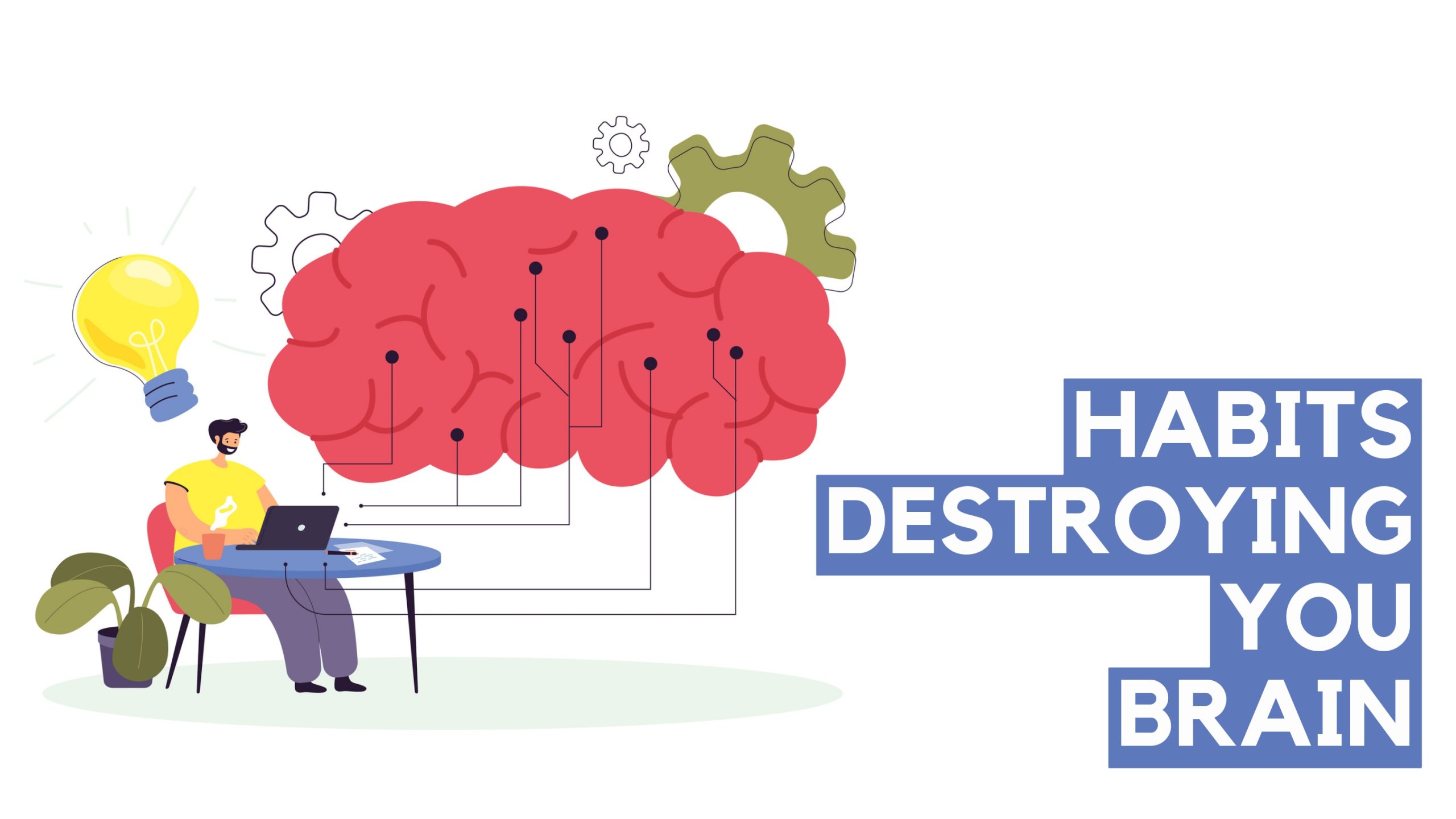Our greatest human adventure is the evolution of consciousness. We are in this life to enlarge the soul, liberate the spirit, and light up the brain. – Tom Robbins
The brain is a pretty amazing part of our bodies. Not only does it make us who we are, it also does thousands of things through different processes: thinking, planning, resting, deciding, and so many, many more. However, just like other parts of our bodies, the brain can be negatively impacted by the things we do and especially the habits we have. Here are the main habits that might be destroying your brain functions and slowing you down.
Not moving enough
The first bad habit is being still. We often spend most of our days sitting down or lying down. We don’t move enough. However, our brains really thrive with exercise. Even moderate exercise can make a difference in terms of brain function.
But what if your job or daily life doesn’t allow for a lot of exercise? Try to take five-minute breaks for each hour you spend sitting down and move around. You can stretch, walk, or do some light exercise, if the situation allows. Just don’t spend hours upon hours sitting down without moving.
Lack of socializing
Even if you feel more like an introvert, you still need other people around you. When we are lonely and don’t interact with people enough, we also start hurting our brain, as it requires other people and positive interactions to develop.
Again, it is possible that your work doesn’t permit too much interaction, but it’s important to have several situations when you can socialize. Become proactive about meeting a friend or a group of friends. Go out to social spaces: board game nights, workshops, classes, and hundreds of other fun activities offer great spaces to meet new people and have a nice time.
Not eating healthy food
When we eat mostly unhealthy food or fail to include enough healthy alternatives, our brain might not receive enough nutrients. The brain uses around a quarter of all the energy we get from food, and it requires vitamins, minerals, protein, fat, and carbs to function well.
We need to include fruit and vegetables, as well as ensure that we are getting a balanced diet. If we are restricting food to get thinner, in particular, it is especially important we have all the things we need included in our day-to-day meal plan.
Keeping the brain idle
Our brains also need stimulation: new information, skills, and fun. When we keep our brains bored and understimulated, we start running on autopilot. We begin to follow the same routine, and the world starts to feel dull. It can be a factor that can even contribute to burn-out and depression. We need to provide stimulation.
What counts as stimulation? Learning new things! The brain loves acquiring new information and ideas, and when it’s hard, we get a lot more satisfaction from persevering. We can also find a lot of pleasure and develop our brain through activities like puzzles, games, reading, and more. All these help us stay focused and develop new neural connections. Your body needs to get workouts to stay well, and your brain does too!
Addictive habits
Addictions are not great for the brain. Whether it’s the addiction to coffee or to nicotine or to a drug or to a behavior, it is harmful to the brain. It makes it difficult for us to focus on something else and enjoy things beyond what we are addicted to.
Kicking an addiction is not always easy. Drugs, in particular, have a hard effect on the brain. It’s a good idea to prevent addictive behaviors and find ways to reduce their presence in our lives if we do have them. They can be more damaging than we know.
Too much social media
Social media is a part of our lives, but too much of it can hurt us on different levels. It can make us feel inadequate, as we begin comparing ourselves to the people we see online. It can take time away from other hobbies, from socializing, and other activities we want to do. It can also become addictive. Often, we don’t even pay attention to how much time we spend on social media. Hint: it’s a lot more than we think.
The solution is not always to eliminate social media, as it has its uses. Rather, it’s about limiting our screen time and making sure that we also do other things during our leisure. We should also curate what we consume and who we follow to ensure we are getting content that makes us feel good, not bad or angry or upset.





